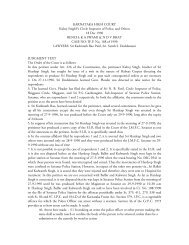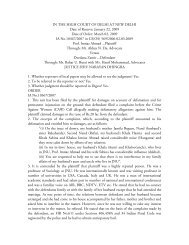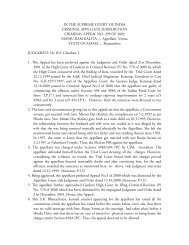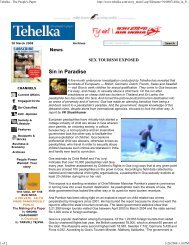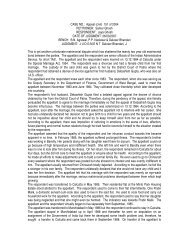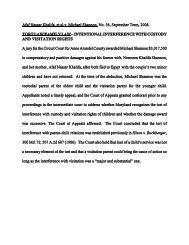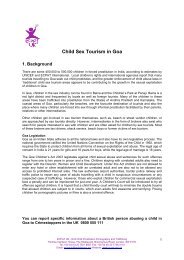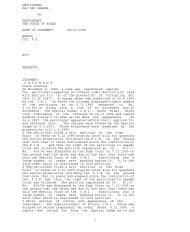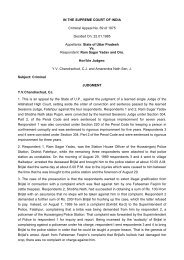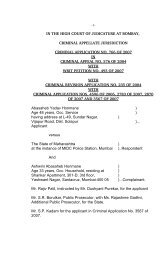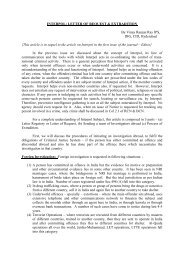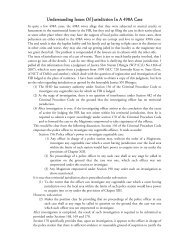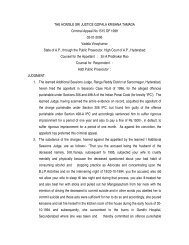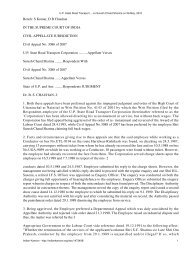THE HINDU MARRIAGE ACT, 1955 - IPC 498A
THE HINDU MARRIAGE ACT, 1955 - IPC 498A
THE HINDU MARRIAGE ACT, 1955 - IPC 498A
You also want an ePaper? Increase the reach of your titles
YUMPU automatically turns print PDFs into web optimized ePapers that Google loves.
APRIL19571 The Hindu Marriage Act, <strong>1955</strong>Judicial SeparationEither party to a marriage may obtain judicial separation on thepresentation of a petition on any one of the following grounds:(a) the respondent has deserted the petitioner for a periodof two years or more "';(b) the respondent has been guilty of cruelty;(c) the respondent has been suffering from leprosy;(d) the respondent is suffering from venereal diseases notcontracted from the petitioner;(e) the respondent has been habitually of unsound mind fromthe date of the marriage; and(f) the respondent has committed adultery.'In the provision for alimony the Hindu Marriage Act has made afundamental departure from the English law of alimony. TheCorpus Juris defines alimony as "the allowance required by lawto be made to a wife out of her husband's estate for her support,either during the matrimonial suit or at its termination, wherethe fact of the marriage is established and she proves herself entitledto a separate maintenance." The English common law rulehas its origin in another common law rule which provided that onmarriage almost the entire property of the wife passed to thehusband. This was probably the reason why English law imposedan obligation on the husband to maintain the wife, not only duringthe course of her marriage, but also after it. The wife is no longerobliged to pass on her property to her husband, yet the commonlaw rule of alimony continues.In this age of equality of sexes, the demand for chsngi~~g themeaning of alimony was nat~ral.~ 111 the Indian Parliament therewas a heated discussion on this provision.' However, the Act lays20 See explanation to s. 10 (1) of the Act.1 s. 10 of the Act.Also see: for suggestion in respect to grounds of nullity, divorce, andjudicial separation, an article by the present writer, intitoled, " Hindu Law ofDivorce, Lfarriage and Alimony," published in <strong>1955</strong> S.C.J. pp. 291-294.2 Hindus consider it their sacred duty to maintain the ~7-ife." It is declared by Rlanu that the aged mother and father, chaste wife andinfant child must be maintained even by doing a hundred misdeeds."-Rlitakshara on Yajnavall;aya, 11, 175; further on, the Mitakshara declares:" IYhere there may be no property but what has been self-acquired: the onlyperson whose maintenance out of such property is imperative are aged parents,wife and minor ch~ldren."Gome American state laws provide that in certain circumstances a wife shouldpay alimony to her husbandThe new law of marriage of China also contains a provision under whichin certain circumstances the wife, too, has to provide alimony for the husband.4 ss. 24 and 26 of the Act. There is no such provision in the Special LlarriageAct, 1954.



